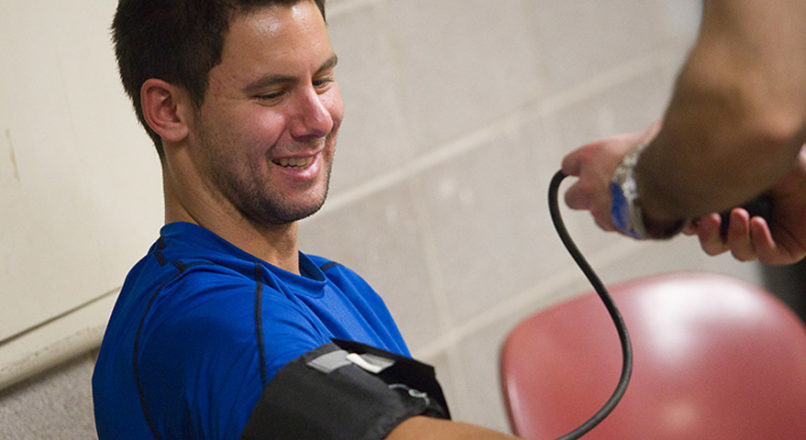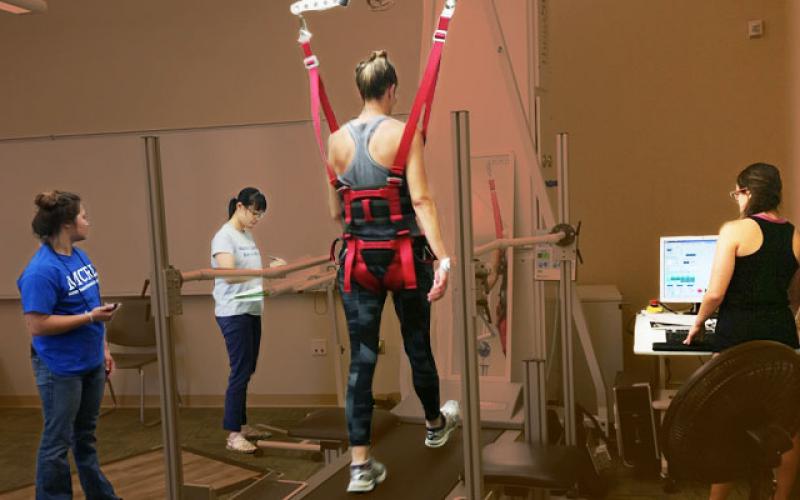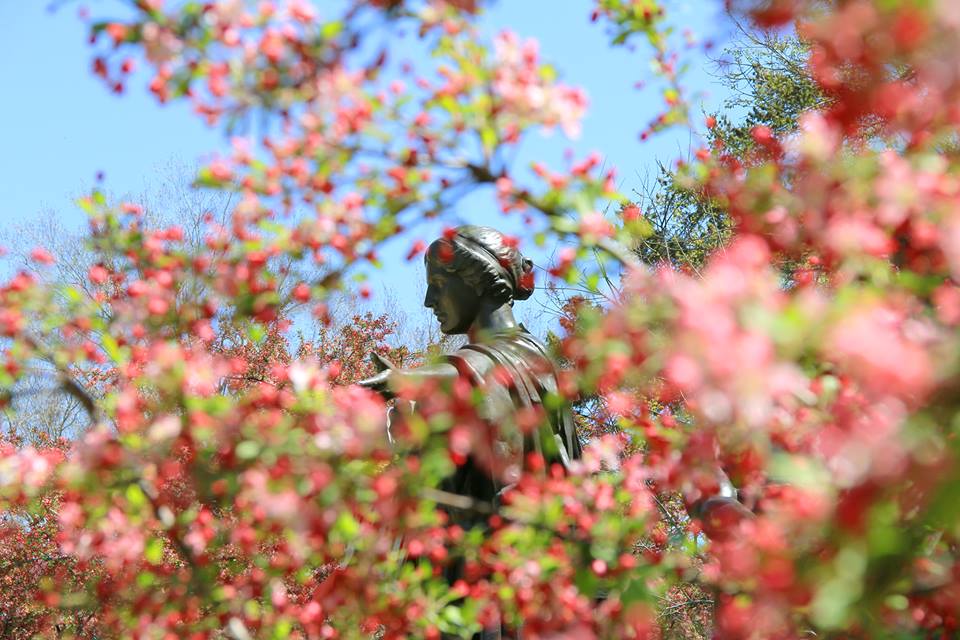Kinesiology
The Kinesiology program provides students with a broad general education, a departmental core that studies human movement, and a correlative area of courses specific to each student's area of concentration within Kinesiology. The curriculum prepares students for careers in human movement–related fields and advanced professional or graduate study. Kinesiology undergraduate students learn about:
- Exercise stress, movement efficiency, and fitness
- Social, cultural, and psychological aspects of participation in physical activity and sport
- Coordination, control, and skill of physical activity
- Physical growth, development, and body form throughout the life span
- The effects of therapeutic techniques of kinesiology upon recovery from physical injury
- Instructional process of teaching/coaching of physical activity and sport.
Students who desire certification as a physical education teacher can satisfy the necessary subject matter requirements by appropriate selection of courses within the several categories of the curriculum. Students seeking such certification should ask the undergraduate academic advisor about admission criteria for the teacher certification program in physical education. For teacher certification requirements applicable to all curricula, see the Council on Teacher Education.
- KIN 140/ HK 140—Social Science of Human Movement
- KIN 150/ HK 150—Bioscience of Human Movement
- KIN 259/ HK 250 - Motor Development and Control
- KIN 122/ HK 154 - Physical Activity and Health
Students should consult with an academic advisor regarding course selection prior to the advanced registration period.
The Kinesiology curriculum leads to a bachelor of science degree that will prepare students for careers in human movement-related fields and/or advanced professional or graduate study.
- Leadership skills
- Instructional Skills
- Demonstrate techniques and rules of sports and games
- Control and discipline
- Safety skills
- Physical therapist
- Physician Assistant
- Medical Doctor
- Athletic trainer
- College coach
- Corporate wellness manager
- Fitness choreographer
- Fitness instructor
- Personal trainer
- Public School Coach
- Recreational Therapist
- Strength and Conditioning Coach
- Kinesiotherapist
- Sports Psychologist
- Physical Education Teacher
- Professional Athlete
- Sports Coach
- Recreation Leader
- Recreation Supervisor
- Camp Counselor
- Sports Columnist
- Public Health Educator
- Weight Reduction Counselor
- Sporting Goods Sales Representative
- Child Care Worker
- Commercial/Industrial Recreation Specialist
- Sports Club Manager
- Sports Broadcaster
- Occupational Therapist
Some careers may require education beyond an undergraduate degree.
- Participating in undergraduate research
- Applying for a study abroad experience
- Utilizing resources of The Career Center
- Joining a Registered Student Organization (RSO) related to this major, such as:
- Applied Health Sciences Student Council: Educates students of the various academic, social, and professional opportunities available. Promotes enhanced interaction between students, alumni, staff, in addition to organizations within the college of Applied Health Sciences.
- Kinesiology Student Association: Provides a mechanism for those interested in kinesiology to express their educational, professional, and social interests and concerns.
There are several professional organizations dedicated to careers in Kinesiology. Their websites might be able to provide a glimpse in the world of Kinesiology. These organizations include National Athletic Trainers’ Association, National Strength and Conditioning Association, American College of Sports Medicine, and American Kinesiology Association.
For more information visit Kinesiology Undergraduate Advising.


